 06/2021 Dr. Wang is featured in the Summer 2021 issue of JHU Engineering magazine for developing microfluidic technologies to make the world healthier. Read the feature article here. Congratulations, Dr. Wang!
06/2021 Dr. Wang is featured in the Summer 2021 issue of JHU Engineering magazine for developing microfluidic technologies to make the world healthier. Read the feature article here. Congratulations, Dr. Wang!
 06/2021 Our lab will present 1 poster at Biosensors 2021. Looking forward to the excellent presentation!
06/2021 Our lab will present 1 poster at Biosensors 2021. Looking forward to the excellent presentation!
 06/2021 Our lab will present 1 talk and 1 poster at Global Health Workshop 2021 sponsored by the Chemical and Biological Microsystems Society (CBMS). Looking forward to excellent presentations!
06/2021 Our lab will present 1 talk and 1 poster at Global Health Workshop 2021 sponsored by the Chemical and Biological Microsystems Society (CBMS). Looking forward to excellent presentations!
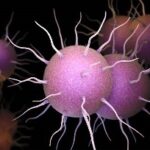 05/2021 Johns Hopkins develops a portable device for rapidly diagnosing STIs. Our lab has created an inexpensive portable device and cellphone APP to diagnose gonorrhea in less than 15 minutes and determine if a particular strain will respond to frontline antibiotics. Results appear in today’s Science Translational Medicine.
05/2021 Johns Hopkins develops a portable device for rapidly diagnosing STIs. Our lab has created an inexpensive portable device and cellphone APP to diagnose gonorrhea in less than 15 minutes and determine if a particular strain will respond to frontline antibiotics. Results appear in today’s Science Translational Medicine.
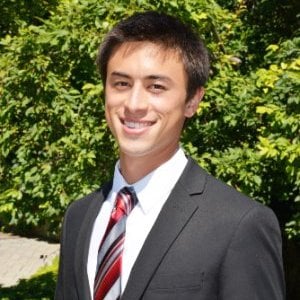 03/2021 Alex Trick won the Whiting School of Engineering Trainee Research Award at the 2021 DOM/WSE Research Retreat for his work on a point-of-care magnetofluidic nucleic acid testing platform.
03/2021 Alex Trick won the Whiting School of Engineering Trainee Research Award at the 2021 DOM/WSE Research Retreat for his work on a point-of-care magnetofluidic nucleic acid testing platform.
 9/30/2020 Ph.D. student, Fangchi Shao won the C.M. Ho Best Paper Award at the Virtual IEEE-NEMS 2020 conference. The award-winning paper is entitled “A Programmable Nanodroplet Device with Direct Sample-to-Droplet Interface toward High-Throughput Screening”. Congratulations!
9/30/2020 Ph.D. student, Fangchi Shao won the C.M. Ho Best Paper Award at the Virtual IEEE-NEMS 2020 conference. The award-winning paper is entitled “A Programmable Nanodroplet Device with Direct Sample-to-Droplet Interface toward High-Throughput Screening”. Congratulations!
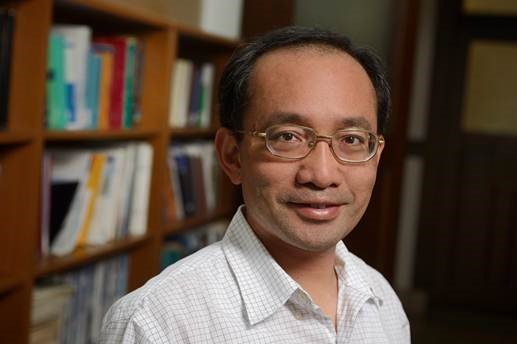 9/1/2020 Jeff Wang and Colleagues Receive Award to Develop HIV Self-Testing Technology. Jeff Wang and a multi-disciplinary team of researchers were awarded $3 million by the National Institutes of Health to develop a diagnostic device for self-testing HIV viral load.
9/1/2020 Jeff Wang and Colleagues Receive Award to Develop HIV Self-Testing Technology. Jeff Wang and a multi-disciplinary team of researchers were awarded $3 million by the National Institutes of Health to develop a diagnostic device for self-testing HIV viral load.
 08/2020 Dr. Johan Melendez accepted the Assistant Professor position in the Department of Medicine (Division of Infectious Diseases) at Johns Hopkins University.
08/2020 Dr. Johan Melendez accepted the Assistant Professor position in the Department of Medicine (Division of Infectious Diseases) at Johns Hopkins University.
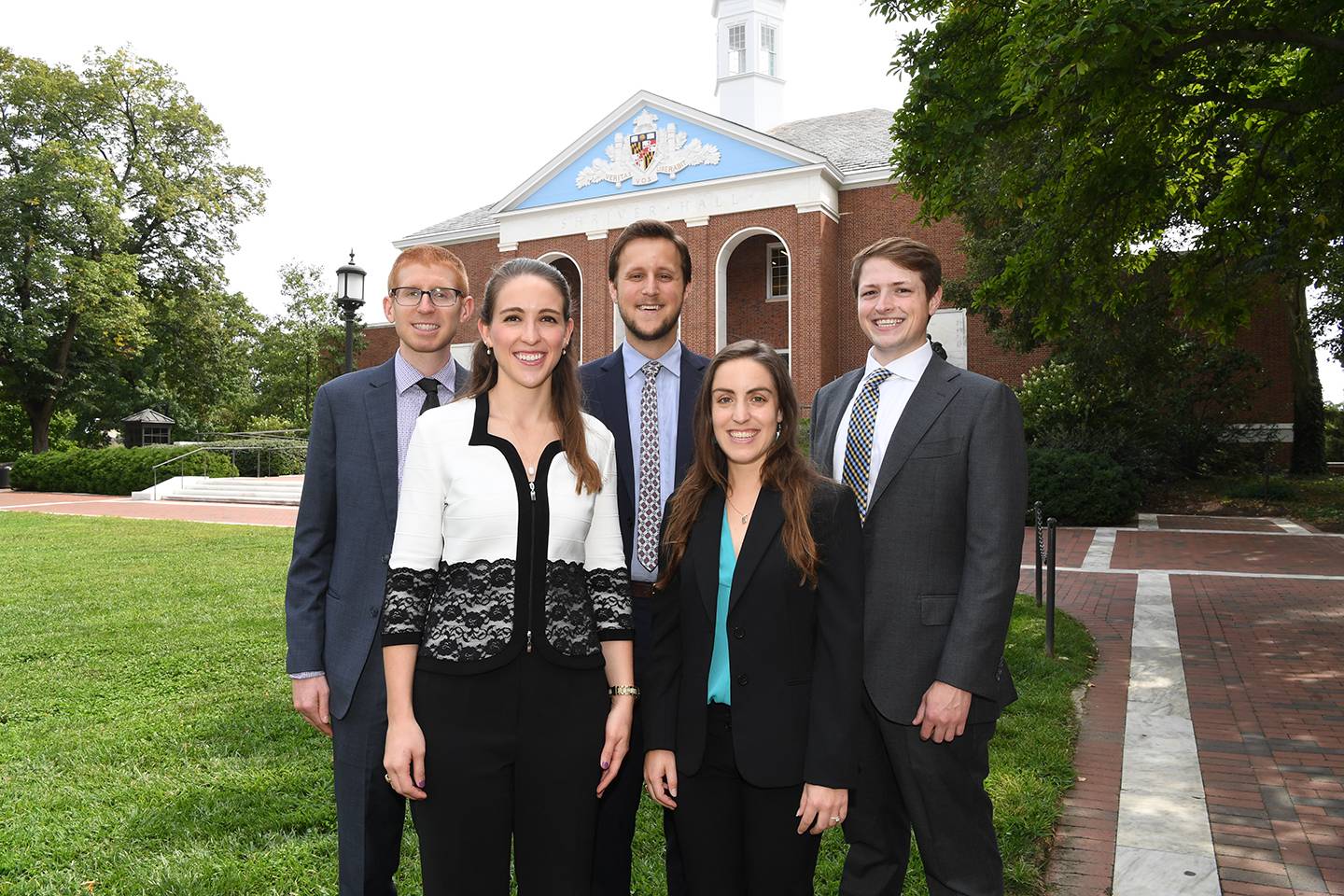 10/2019 Johns Hopkins Engineering Doctoral Students Named 2020 Siebel Scholars. Chrissy O’Keefe, a BME PhD candidate from Wang’s lab, named the 2020 Siebel Scholar. The Siebel Scholars program was established by the Siebel Foundation in 2000 to recognize the most talented students at the world’s leading graduate schools of business, computer science, and bioengineering.
10/2019 Johns Hopkins Engineering Doctoral Students Named 2020 Siebel Scholars. Chrissy O’Keefe, a BME PhD candidate from Wang’s lab, named the 2020 Siebel Scholar. The Siebel Scholars program was established by the Siebel Foundation in 2000 to recognize the most talented students at the world’s leading graduate schools of business, computer science, and bioengineering.
 9/2019 Dr. Jeff Wang has been elected as an IEEE Fellow. The designation of “Fellow” is bestowed on those who have made outstanding contributions to IEEE fields of interest. Dr. Wang is being recognized for contributions to micro- and nano-technologies for biomedical applications.
9/2019 Dr. Jeff Wang has been elected as an IEEE Fellow. The designation of “Fellow” is bestowed on those who have made outstanding contributions to IEEE fields of interest. Dr. Wang is being recognized for contributions to micro- and nano-technologies for biomedical applications.
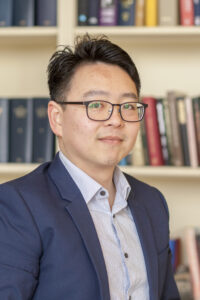 9/2020 Kuangwen Hsieh Awarded with Johns Hopkins University Center for AIDS Research Scholar Grant. Kuangwen Hsieh received the award that aims to develop a rapid HIV diagnostic based on CRISPR technology.
9/2020 Kuangwen Hsieh Awarded with Johns Hopkins University Center for AIDS Research Scholar Grant. Kuangwen Hsieh received the award that aims to develop a rapid HIV diagnostic based on CRISPR technology.
 12/2019 Kuangwen Hsieh Awarded with Johns Hopkins University Fisher Center Discovery Program Grant. Kuangwen Hsieh and Sean Zhang, Associate Professor of Pathology, received the award that aims to develop a rapid point-of-care diagnostic for a multidrug-resistant fungus called Candida auris.
12/2019 Kuangwen Hsieh Awarded with Johns Hopkins University Fisher Center Discovery Program Grant. Kuangwen Hsieh and Sean Zhang, Associate Professor of Pathology, received the award that aims to develop a rapid point-of-care diagnostic for a multidrug-resistant fungus called Candida auris.
 1/18/2019 Hopkins, GE Global Research to create portable diagnostic device to combat infectious diseases. Jeff Wang and team will create a new platform that can quickly identify and characterize pathogens responsible for many infectious diseases.
1/18/2019 Hopkins, GE Global Research to create portable diagnostic device to combat infectious diseases. Jeff Wang and team will create a new platform that can quickly identify and characterize pathogens responsible for many infectious diseases.
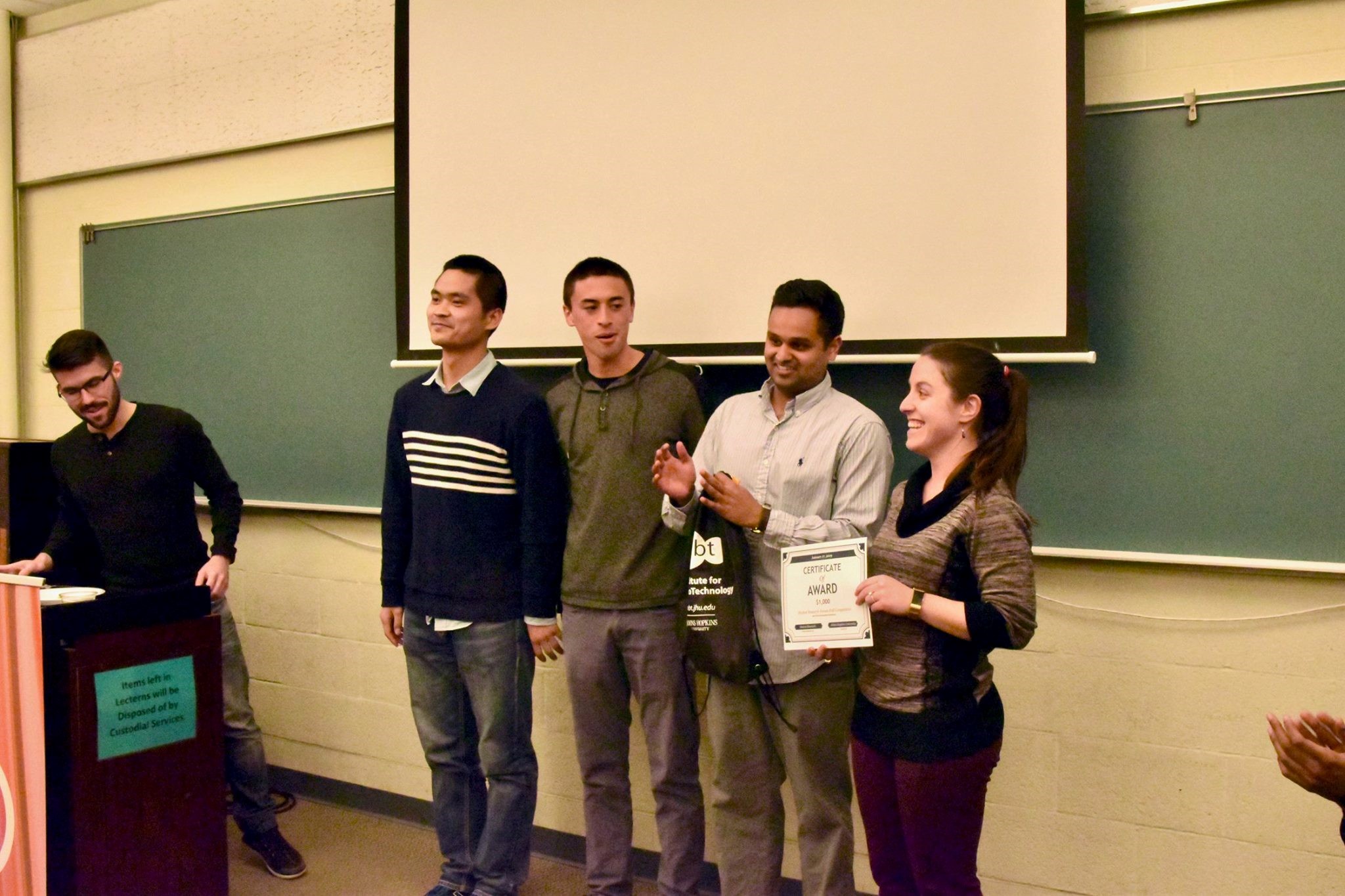 1/2019 Students win first place at the Institute of Nanobiotechnology Student Research Forum competition. Chrissy O’Keefe, Alex Trick, Anu Kaushik and Pengfei Zhang, PhD candidates in Prof. Jeff Wang’s lab, presented their business pitch for a rapid microfluidic platform for infectious disease and cancer diagnostics at INBT’s Student Research Forum and secured the first place $1000 prize. INBT’s semiannual Student Research Forum Competition recognizes the best research proposals and business pitches from all Hopkins graduate students and postdocs while encouraging students to share their research and engage with other scientists, faculty, and industry representatives in a professional setting.
1/2019 Students win first place at the Institute of Nanobiotechnology Student Research Forum competition. Chrissy O’Keefe, Alex Trick, Anu Kaushik and Pengfei Zhang, PhD candidates in Prof. Jeff Wang’s lab, presented their business pitch for a rapid microfluidic platform for infectious disease and cancer diagnostics at INBT’s Student Research Forum and secured the first place $1000 prize. INBT’s semiannual Student Research Forum Competition recognizes the best research proposals and business pitches from all Hopkins graduate students and postdocs while encouraging students to share their research and engage with other scientists, faculty, and industry representatives in a professional setting.
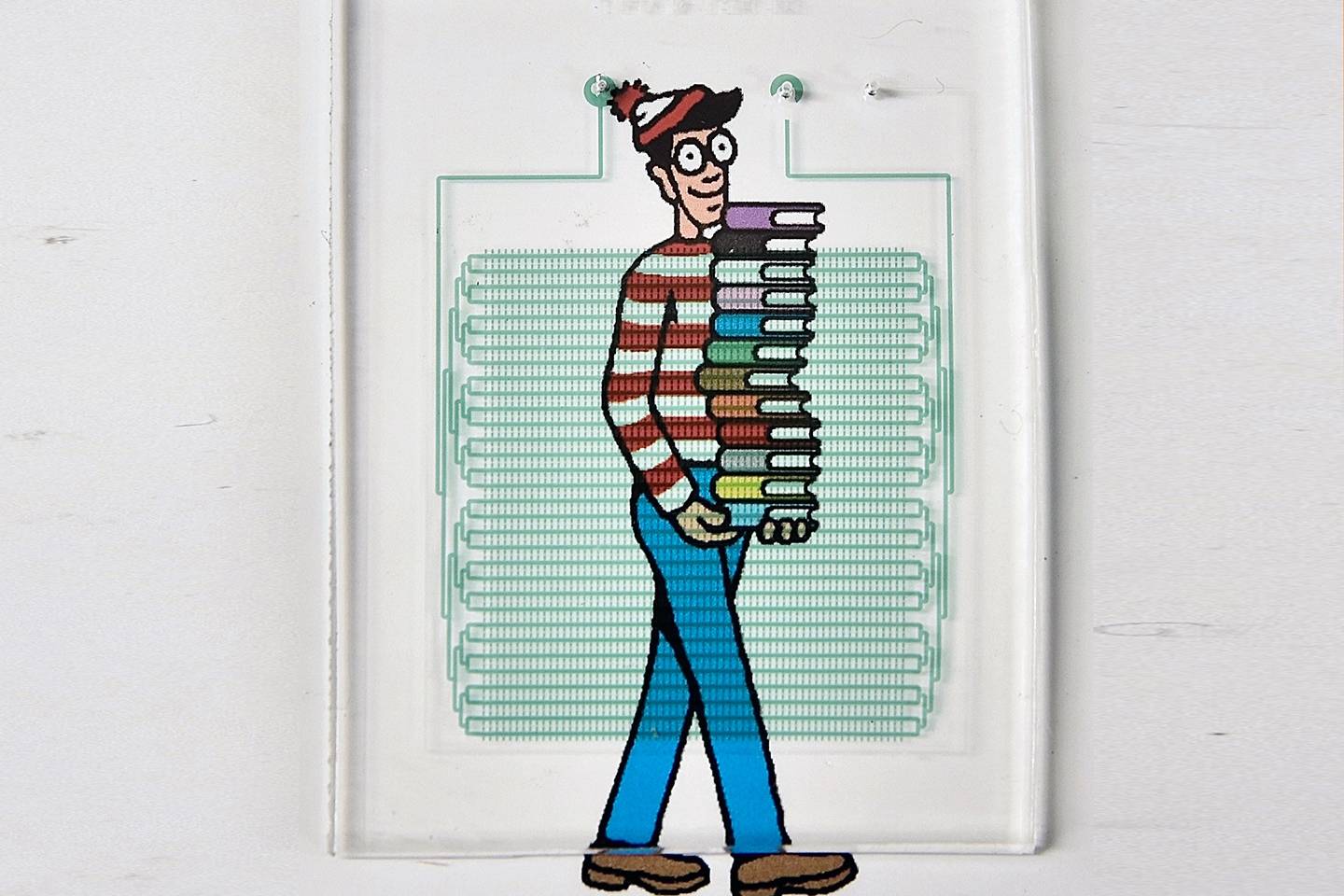 10/16/2018 Student develops microfluidics device to help scientists identify early genetic markers of cancer “HYPER-Melt device analyzes small volumes of fluids, detecting genetic and epigenetic changes more efficiently and cost-effectively than other devices currently on the market”
10/16/2018 Student develops microfluidics device to help scientists identify early genetic markers of cancer “HYPER-Melt device analyzes small volumes of fluids, detecting genetic and epigenetic changes more efficiently and cost-effectively than other devices currently on the market”
 9/28/2018 Hopkins Team Awarded $5.1M by NIH New cases of sexually transmitted diseases are on the rise worldwide, and some strains have become resistant to the antibiotics commonly used to treat them. With the support of a $5.1 million grant from the National Institutes of Health, Prof. Jeff Wang is leading a team that is creating a device that not only rapidly tests for gonorrhea, but detects if a particular bacterial strain is resistant to antibiotics.
9/28/2018 Hopkins Team Awarded $5.1M by NIH New cases of sexually transmitted diseases are on the rise worldwide, and some strains have become resistant to the antibiotics commonly used to treat them. With the support of a $5.1 million grant from the National Institutes of Health, Prof. Jeff Wang is leading a team that is creating a device that not only rapidly tests for gonorrhea, but detects if a particular bacterial strain is resistant to antibiotics.
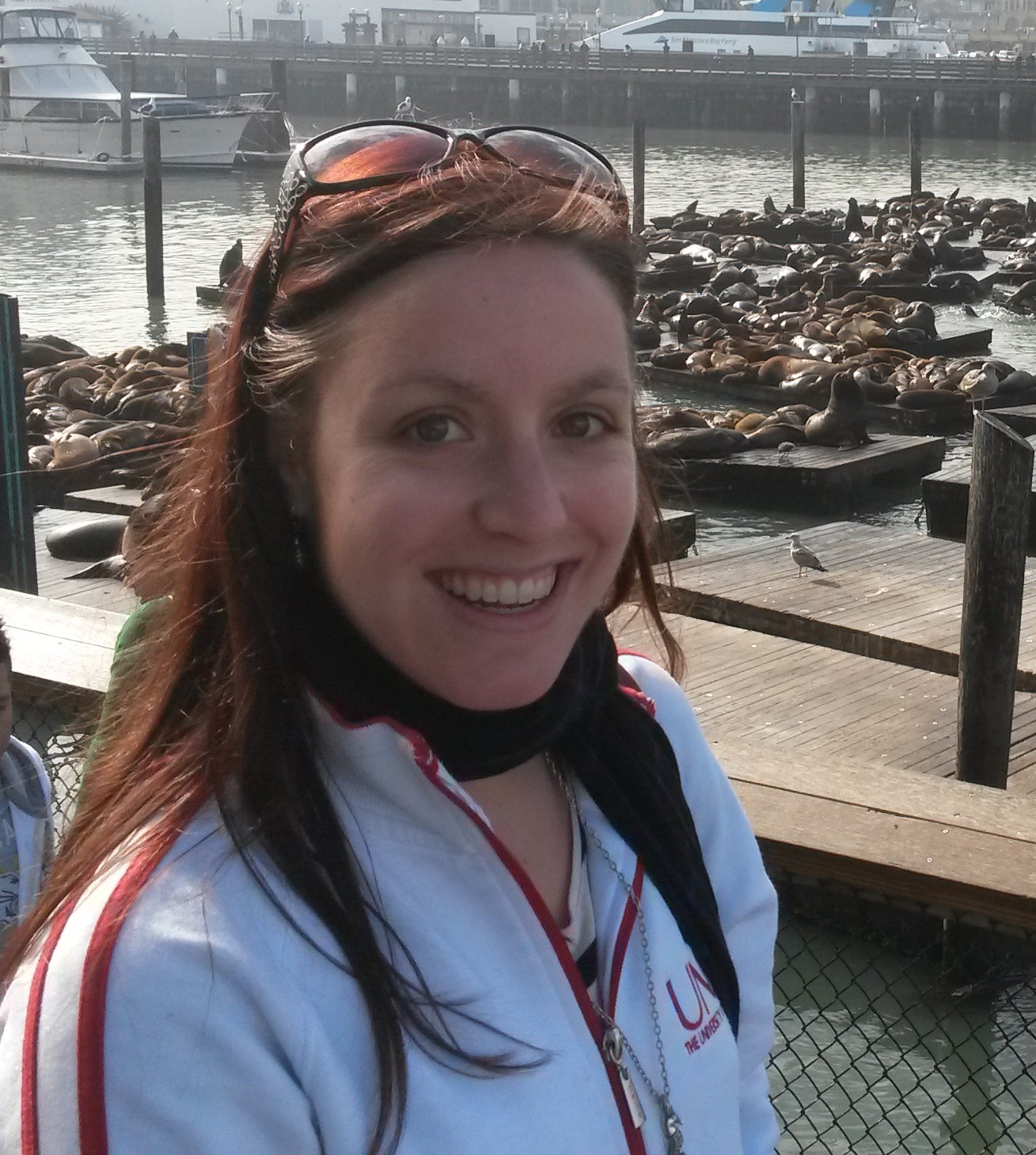 9/25/2018 Chrissy O’Keefe Honored with PEO Scholar Award Chrissy O’Keefe, a Ph.D. student in biomedical engineering at Johns Hopkins University, is one of 100 doctoral students in the U. S. and Canada selected to receive a $15,000 Scholar Award from the P.E.O. Sisterhood. She was sponsored by Chapter Q of Bel Air, MD. The P.E.O. Scholar Awards (PSA) were established in 1991 to provide substantial merit-based awards for women of the United States and Canada who are pursuing a doctoral-level degree at an accredited college or university. Scholar Awards recipients are a select group of women chosen for their high level of academic achievement and their potential for having a positive impact on society.
9/25/2018 Chrissy O’Keefe Honored with PEO Scholar Award Chrissy O’Keefe, a Ph.D. student in biomedical engineering at Johns Hopkins University, is one of 100 doctoral students in the U. S. and Canada selected to receive a $15,000 Scholar Award from the P.E.O. Sisterhood. She was sponsored by Chapter Q of Bel Air, MD. The P.E.O. Scholar Awards (PSA) were established in 1991 to provide substantial merit-based awards for women of the United States and Canada who are pursuing a doctoral-level degree at an accredited college or university. Scholar Awards recipients are a select group of women chosen for their high level of academic achievement and their potential for having a positive impact on society.
 2/1/2018 Jeff Wang awarded a NIH grant on single-cell bacterial diagnostics Professor Wang was awarded a NIH R01 grant for developing a single-cell analysis platform for rapid diagnostics of infectious diseases. This 3.79 million dollar grant entitled, “A “Culture” Shift: Integrated Bacterial Screening and Antibacterial Susceptibility Test on Microfluidic Digital Array for Bloodstream Infections”, led by Professor Wang is a collaboration with Professor Sam Yang at Stanford University to develop a single-cell diagnostic platform for integrated pathogen identification (ID) and antibacterial susceptibility testing (AST) in a streamlined test.
2/1/2018 Jeff Wang awarded a NIH grant on single-cell bacterial diagnostics Professor Wang was awarded a NIH R01 grant for developing a single-cell analysis platform for rapid diagnostics of infectious diseases. This 3.79 million dollar grant entitled, “A “Culture” Shift: Integrated Bacterial Screening and Antibacterial Susceptibility Test on Microfluidic Digital Array for Bloodstream Infections”, led by Professor Wang is a collaboration with Professor Sam Yang at Stanford University to develop a single-cell diagnostic platform for integrated pathogen identification (ID) and antibacterial susceptibility testing (AST) in a streamlined test.
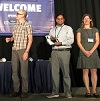 10/2017 Alex Trick and Anu Kaushik win Video Award Competition at microTAS 2017. Alex Trick and Anu Kaushik, PhD candidates in Prof. Wang’s lab made a rap parody music video to describe their work on droplet microfluidics for single-cell analysis. The annual Video Award Competition recognizes short videos that are scientifically or educationally focused that are also fun, artistic, or surprising. Watch their video!
10/2017 Alex Trick and Anu Kaushik win Video Award Competition at microTAS 2017. Alex Trick and Anu Kaushik, PhD candidates in Prof. Wang’s lab made a rap parody music video to describe their work on droplet microfluidics for single-cell analysis. The annual Video Award Competition recognizes short videos that are scientifically or educationally focused that are also fun, artistic, or surprising. Watch their video!
 10/2017 Anu Kaushik has been selected to attend the sixth annual Global Young Scientists Summit in Singapore from 21-26 January 2018.
10/2017 Anu Kaushik has been selected to attend the sixth annual Global Young Scientists Summit in Singapore from 21-26 January 2018.
 10/2017 Five Johns Hopkins graduate students named Siebel Scholars. Sarah Friedrich, a BME PhD candidate from Wang’s lab, named 2018 Siebel Scholar. The Siebel Scholars program was established by the Siebel Foundation in 2000 to recognize the most talented students at the world’s leading graduate schools of business, computer science, and bioengineering.
10/2017 Five Johns Hopkins graduate students named Siebel Scholars. Sarah Friedrich, a BME PhD candidate from Wang’s lab, named 2018 Siebel Scholar. The Siebel Scholars program was established by the Siebel Foundation in 2000 to recognize the most talented students at the world’s leading graduate schools of business, computer science, and bioengineering.
 09/2017 Congratulations to Sarah Friedrich for the acceptance of her paper, Molecular Rheotaxis Directs DNA Migration and Concentration Against a Pressure-Driven Flow, in Nature Communications! Read more about Sarah’s work here: “Serendipity Leads to Simpler Method for Analyzing DNA.”
09/2017 Congratulations to Sarah Friedrich for the acceptance of her paper, Molecular Rheotaxis Directs DNA Migration and Concentration Against a Pressure-Driven Flow, in Nature Communications! Read more about Sarah’s work here: “Serendipity Leads to Simpler Method for Analyzing DNA.”
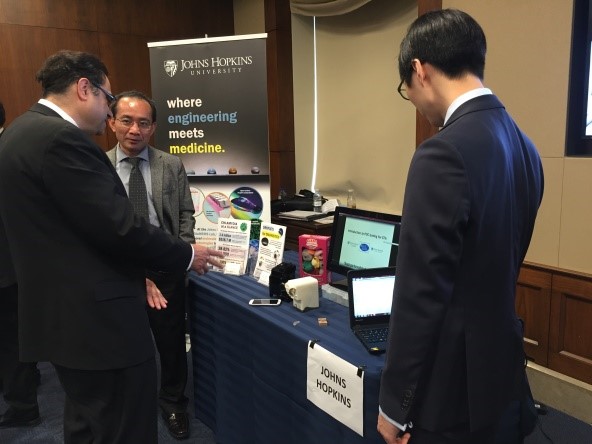 05/2017 Prof. Jeff Wang’s lab showcases mobile disease diagnosis device on Capitol Hill. Professor Jeff Wang, Dong Jin Shin and Natt Athamanolap traveled to Capitol Hill on Friday, May 5 and demonstrated a mobile device for point-of-care (POC) diagnostics of infectious diseases as a part of the American Institute of Medical and Biological Imaging (AIMBE) Congressional Biomedical Technology Exhibition.
05/2017 Prof. Jeff Wang’s lab showcases mobile disease diagnosis device on Capitol Hill. Professor Jeff Wang, Dong Jin Shin and Natt Athamanolap traveled to Capitol Hill on Friday, May 5 and demonstrated a mobile device for point-of-care (POC) diagnostics of infectious diseases as a part of the American Institute of Medical and Biological Imaging (AIMBE) Congressional Biomedical Technology Exhibition.
 08/2015 Johns Hopkins Engineering Doctoral Students Named 2016 Siebel Scholars. Dong Jin Shin, a BME PhD candidate from Wang’s lab, named the 2016 Siebel Scholar. The Siebel Scholars program was established by the Siebel Foundation in 2000 to recognize the most talented students at the world’s leading graduate schools of business, computer science, and bioengineering.
08/2015 Johns Hopkins Engineering Doctoral Students Named 2016 Siebel Scholars. Dong Jin Shin, a BME PhD candidate from Wang’s lab, named the 2016 Siebel Scholar. The Siebel Scholars program was established by the Siebel Foundation in 2000 to recognize the most talented students at the world’s leading graduate schools of business, computer science, and bioengineering.
 06/2014 Dr. Weihua Guan accepted the Assistant Professor position in the Electrical Engineering Department at Penn State.
06/2014 Dr. Weihua Guan accepted the Assistant Professor position in the Electrical Engineering Department at Penn State.
 06/2014 Dr. Stephanie Fraley accepted the Assistant Professor position in the Bioengineering Department at UC San Diego.
06/2014 Dr. Stephanie Fraley accepted the Assistant Professor position in the Bioengineering Department at UC San Diego.
 09/2013 Five Johns Hopkins Engineering Doctoral Students Named 2014 Siebel Scholars. Tushar Rane, a BME PhD candidate from Wang’s lab, named the 2014 Siebel Scholar. The Siebel Scholars program was established by the Siebel Foundation in 2000 to recognize the most talented students at the world’s leading graduate schools of business, computer science, and bioengineering.
09/2013 Five Johns Hopkins Engineering Doctoral Students Named 2014 Siebel Scholars. Tushar Rane, a BME PhD candidate from Wang’s lab, named the 2014 Siebel Scholar. The Siebel Scholars program was established by the Siebel Foundation in 2000 to recognize the most talented students at the world’s leading graduate schools of business, computer science, and bioengineering.
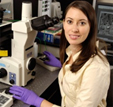 06/2013 Stephanie Fraley won the $500,000 Burroughs Wellcome Fund (BWF) Career Award. BWF’s Career Awards to bridge advanced postdoctoral training and the first three years of faculty service. These awards are intended to foster the early career development of researchers who have transitioned or are transitioning from undergraduate and/or graduate work in the physical/mathematical/computational sciences or engineering into postdoctoral work in the biological sciences, and who are dedicated to pursuing a career in academic research.
06/2013 Stephanie Fraley won the $500,000 Burroughs Wellcome Fund (BWF) Career Award. BWF’s Career Awards to bridge advanced postdoctoral training and the first three years of faculty service. These awards are intended to foster the early career development of researchers who have transitioned or are transitioning from undergraduate and/or graduate work in the physical/mathematical/computational sciences or engineering into postdoctoral work in the biological sciences, and who are dedicated to pursuing a career in academic research.
 04/2013 Helena Zec received the P.E.O. Scholar Award. P.E.O. Scholar Awards are one-time competitive awards for women of the United States and Canada who are either pursuing a graduate degree or engaged in advanced study or research at an accredited college or university. In addition to recognizing and encouraging excellence in higher education, these awards provide partial support for study and research for women who will make significant contributions in their varied fields of endeavor.
04/2013 Helena Zec received the P.E.O. Scholar Award. P.E.O. Scholar Awards are one-time competitive awards for women of the United States and Canada who are either pursuing a graduate degree or engaged in advanced study or research at an accredited college or university. In addition to recognizing and encouraging excellence in higher education, these awards provide partial support for study and research for women who will make significant contributions in their varied fields of endeavor.
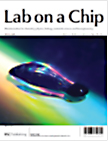 04/2013 Stretching the Rainbow. Yi Zhang’s award winning image was featured on the front cover of Lab Chip. The winning image depicts a tiny water droplet held in place by surface energy traps (SETs) and stretched using a magnetic field to pull on magnetic particles within it. The device consisted of a glass cover slip coated with Teflon and patterned with the SETs. The device was placed on top of a DVD disc to produce the brilliant rainbow colors. A white LED light source was brought to an angle that maximized the intensity of a diffraction pattern that reflected from the surface of the DVD. The magnet was positioned under the assembly and used to tug on the magnetic particles, which appear as a black plug in the droplet.
04/2013 Stretching the Rainbow. Yi Zhang’s award winning image was featured on the front cover of Lab Chip. The winning image depicts a tiny water droplet held in place by surface energy traps (SETs) and stretched using a magnetic field to pull on magnetic particles within it. The device consisted of a glass cover slip coated with Teflon and patterned with the SETs. The device was placed on top of a DVD disc to produce the brilliant rainbow colors. A white LED light source was brought to an angle that maximized the intensity of a diffraction pattern that reflected from the surface of the DVD. The magnet was positioned under the assembly and used to tug on the magnetic particles, which appear as a black plug in the droplet.
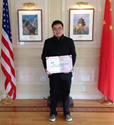 03/2013 Yi Zhang received the Chinese Government Award for Outstanding Self-financed Student Aboard. This award which started in 2003, sponsored by the Chinese government, is awarded to recognize outstanding research accomplishments of Chinese graduate students studying outside China without government funding.
03/2013 Yi Zhang received the Chinese Government Award for Outstanding Self-financed Student Aboard. This award which started in 2003, sponsored by the Chinese government, is awarded to recognize outstanding research accomplishments of Chinese graduate students studying outside China without government funding.
 01/2013 Yi Zhang and Cyrus Beh are the Grand Prize Winner of the 2013 JALA & JBS Art of Science Contest. In the the award winning picture, five droplets of identical volume display gradually decreasing contact angles due to the surface energy gradient created on a polydimethylsiloxane (PDMS) substrate. Five water droplets were stained with different food dyes to aid visualization. The energy gradient is created by adjusting the surface roughness of the PDMS substrate through microengineering. Various regions on the PDMS substrate are roughened to different degrees by altering the sizes and spacing of the microstructures on the surface.
01/2013 Yi Zhang and Cyrus Beh are the Grand Prize Winner of the 2013 JALA & JBS Art of Science Contest. In the the award winning picture, five droplets of identical volume display gradually decreasing contact angles due to the surface energy gradient created on a polydimethylsiloxane (PDMS) substrate. Five water droplets were stained with different food dyes to aid visualization. The energy gradient is created by adjusting the surface roughness of the PDMS substrate through microengineering. Various regions on the PDMS substrate are roughened to different degrees by altering the sizes and spacing of the microstructures on the surface.
 11/2012 Yi Zhang won The Best Paper Award of the The 6th IEEE International Conference on Nano/Molecular Medicine and Engineering (IEEE NANOMED 2012)
11/2012 Yi Zhang won The Best Paper Award of the The 6th IEEE International Conference on Nano/Molecular Medicine and Engineering (IEEE NANOMED 2012)
 10/2012 μTAS Art in Science Award. Yi Zhang (center) receives the 5th annual μTAS Art in Science Award, presented by Michael Gaitan of NIST (left) and Harpal Minhas of LOC/RSC (right).
10/2012 μTAS Art in Science Award. Yi Zhang (center) receives the 5th annual μTAS Art in Science Award, presented by Michael Gaitan of NIST (left) and Harpal Minhas of LOC/RSC (right).
 09/2012 Five BME doctoral candidates named 2011 Siebel Scholars. Yi Zhang, a BME PhD candidate from Wang’s lab, named the 2013 Siebel Scholar. The Siebel Scholars program was established by the Siebel Foundation in 2000 to recognize the most talented students at the world’s leading graduate schools of business, computer science, and bioengineering.
09/2012 Five BME doctoral candidates named 2011 Siebel Scholars. Yi Zhang, a BME PhD candidate from Wang’s lab, named the 2013 Siebel Scholar. The Siebel Scholars program was established by the Siebel Foundation in 2000 to recognize the most talented students at the world’s leading graduate schools of business, computer science, and bioengineering.
 04/2012 Yin and Yang in a Droplet. Yi Zhang’s award winning image was featured on the front cover of Lab Chip. The fluorescence image is described as a snapshot of the mixing of two types of quantum dot solutions inside a sessile droplet driven by a microfluidic magnetic gyromixer. The mixing results in quantum dot streamlines that resemble the ancient Chinese symbol for Yin and Yang.
04/2012 Yin and Yang in a Droplet. Yi Zhang’s award winning image was featured on the front cover of Lab Chip. The fluorescence image is described as a snapshot of the mixing of two types of quantum dot solutions inside a sessile droplet driven by a microfluidic magnetic gyromixer. The mixing results in quantum dot streamlines that resemble the ancient Chinese symbol for Yin and Yang.
 03/2012 The Lindau Nobel Laureate Meetings. Helena Zec has been selected to attend the 62nd Lindau Nobel Laureate Meeting to be held 1-6 July 2012 in in Germany.
03/2012 The Lindau Nobel Laureate Meetings. Helena Zec has been selected to attend the 62nd Lindau Nobel Laureate Meeting to be held 1-6 July 2012 in in Germany.
 03/2012 BioMEMS Lab alumnus Tim Yeh accepting the Assistant Professor position in the Biomedical Engineering Department at UT Austin.
03/2012 BioMEMS Lab alumnus Tim Yeh accepting the Assistant Professor position in the Biomedical Engineering Department at UT Austin.
 01/2012 ACS Nano Podcast featuring an interview with Dr. Jeff Wang about quantum nanotethers for high-resolution genetic analysis.
01/2012 ACS Nano Podcast featuring an interview with Dr. Jeff Wang about quantum nanotethers for high-resolution genetic analysis.
 02/2012 BioMEMS Lab alumnus Megan Ho receives Sapere Aude Young Elite Researcher Award and will join iNANO at Aarhus University in Denmark.
02/2012 BioMEMS Lab alumnus Megan Ho receives Sapere Aude Young Elite Researcher Award and will join iNANO at Aarhus University in Denmark.
 10/2011 μTAS Art in Science Award. Yi Zhang and Dong Jin Shin (center) receives the 4th annual μTAS Art in Science Award, presented by Michael Gaitan of NIST (left) and Harpal Minhas of LOC/RSC (right).
10/2011 μTAS Art in Science Award. Yi Zhang and Dong Jin Shin (center) receives the 4th annual μTAS Art in Science Award, presented by Michael Gaitan of NIST (left) and Harpal Minhas of LOC/RSC (right).
 07/2011 Dr. Wang received a R01 grant of $1.7M from NIH/NCI for the development of multiplexed single-molecule detection platform for analysis of cancer biomarkers.
07/2011 Dr. Wang received a R01 grant of $1.7M from NIH/NCI for the development of multiplexed single-molecule detection platform for analysis of cancer biomarkers.
 05/2011 INBT Symposium Poster Award. Yi Zhang received the the 3rd prize for the Best Poster Award in 2011 INBT Symposium.
05/2011 INBT Symposium Poster Award. Yi Zhang received the the 3rd prize for the Best Poster Award in 2011 INBT Symposium.
 01/2011 Yi Zhang won the Best Paper Award from the 6th Annual IEEE International Conference on Nano/Micro Engineered and Molecular Systems (IEEE NEMS 2011).
01/2011 Yi Zhang won the Best Paper Award from the 6th Annual IEEE International Conference on Nano/Micro Engineered and Molecular Systems (IEEE NEMS 2011).
2010
 09/2010 The JHU Gazette: NCI grant launches nanotech cancer center. Faculty members associated with the Johns Hopkins Institute for NanoBioTechnology have received a $13.6 million five-year grant from the National Cancer Institute to establish a Center of Cancer Nanotechnology Excellence (CCNE). In CCNE, Dr. Jeff Wang serves as a Project Leader of the project on screening DNA methylation for early cancer diagnostics.
09/2010 The JHU Gazette: NCI grant launches nanotech cancer center. Faculty members associated with the Johns Hopkins Institute for NanoBioTechnology have received a $13.6 million five-year grant from the National Cancer Institute to establish a Center of Cancer Nanotechnology Excellence (CCNE). In CCNE, Dr. Jeff Wang serves as a Project Leader of the project on screening DNA methylation for early cancer diagnostics.
 09/2010 The JHU Gazette: Five BME doctoral candidates named 2011 Siebel Scholars. Kelvin Liu, a BME PhD candidate from Wang’s lab, named the 2011 Siebel Scholar. The Siebel Scholars program was established by the Siebel Foundation in 2000 to recognize the most talented students at the world’s leading graduate schools of business, computer science, and bioengineering.
09/2010 The JHU Gazette: Five BME doctoral candidates named 2011 Siebel Scholars. Kelvin Liu, a BME PhD candidate from Wang’s lab, named the 2011 Siebel Scholar. The Siebel Scholars program was established by the Siebel Foundation in 2000 to recognize the most talented students at the world’s leading graduate schools of business, computer science, and bioengineering.

08/2010 Yi Zhang, a BME PhD student from Wang’s lab, received an AACR Scholar-in-Training Award sponsored by American Association for Cancer Research (AACR).
 07/2010 Yi Zhang, a BME Ph.D. student from Wang’s lab, received the Hodson Fellowship sponsored by The Hodson Trust.
07/2010 Yi Zhang, a BME Ph.D. student from Wang’s lab, received the Hodson Fellowship sponsored by The Hodson Trust.
 06/2010 “Detection of circulating nucleic acids” Kelvin Liu’s paper “Decoding Circulating Nucleic Acids in Human Serum Using Microfluidic Single Molecule Spectroscopy”, JACS 2010, 132, 5793-5798, is highlighted in Research Highlights in the October Issue of Lab Chip.
06/2010 “Detection of circulating nucleic acids” Kelvin Liu’s paper “Decoding Circulating Nucleic Acids in Human Serum Using Microfluidic Single Molecule Spectroscopy”, JACS 2010, 132, 5793-5798, is highlighted in Research Highlights in the October Issue of Lab Chip.
 06/2010 Prof. Jeff Wang serves as a guest editor for a special issue on Transforming Microfluidics into Laboratory Automation for Journal of the Association for Laboratory Automation (JALA)
06/2010 Prof. Jeff Wang serves as a guest editor for a special issue on Transforming Microfluidics into Laboratory Automation for Journal of the Association for Laboratory Automation (JALA)
 05/2010 Brian Keeley received the Best Poster Award in the 2010 INBT Symposium.
05/2010 Brian Keeley received the Best Poster Award in the 2010 INBT Symposium.
2009
 12/2010 “Seeing inside Droplets: Single molecule trapped in tiny droplets can be detected and counted”. Tushar Rane’s paper “Counting single molecule in sub-nanolitre droplets” (Lab Chip 2010, 10,161-63) is highlighted in the December 2009 issue of Highlights in Chemical Technology.
12/2010 “Seeing inside Droplets: Single molecule trapped in tiny droplets can be detected and counted”. Tushar Rane’s paper “Counting single molecule in sub-nanolitre droplets” (Lab Chip 2010, 10,161-63) is highlighted in the December 2009 issue of Highlights in Chemical Technology.
 09/2010 The JHU Gazette: Five JohnsHopkins graduate students named Siebel Scholars. Vasudev Bailey, a BME PhD candidate from Wang’s lab, named the 2010 Siebel Scholar. The Siebel Scholars program was established by the Siebel Foundation in 2000 to recognize the most talented students at the world’s leading graduate schools of business, computer science, and bioengineering.
09/2010 The JHU Gazette: Five JohnsHopkins graduate students named Siebel Scholars. Vasudev Bailey, a BME PhD candidate from Wang’s lab, named the 2010 Siebel Scholar. The Siebel Scholars program was established by the Siebel Foundation in 2000 to recognize the most talented students at the world’s leading graduate schools of business, computer science, and bioengineering.

08/2009 Prof. Wang delivered a lecture in 2009 IUTAM Summer School on Mechanics in Microfluidics in Beijing.
 08/2010 JHU Gazette: New DNA Test Uses Nanotechnology to Find Early Signs of Cancer. Using tiny crystals called quantum dots, Johns Hopkins researchers have developed a highly sensitive test to look for DNA attachments that often are early warning signs of cancer. This test, which detects both the presence and the quantity of certain DNA changes, could alert people who are at risk of developing the disease and could tell doctors how well a particular cancer treatment is working.
08/2010 JHU Gazette: New DNA Test Uses Nanotechnology to Find Early Signs of Cancer. Using tiny crystals called quantum dots, Johns Hopkins researchers have developed a highly sensitive test to look for DNA attachments that often are early warning signs of cancer. This test, which detects both the presence and the quantity of certain DNA changes, could alert people who are at risk of developing the disease and could tell doctors how well a particular cancer treatment is working.
 07/2009 NIH Nanotech News: Monitoring Cancer Cell Changes With Quantum Dots One of the earliest events that changes a normal cell into a malignant one is known as deoxyribonucleic acid (DNA) hypermethylation, a biochemical alteration that inactivates critical tumor-suppressor genes. A team of investigators at Johns Hopkins University has developed a quantum dot-based method that can quantify DNA methylation in premalignant cells harvested from human patients.
07/2009 NIH Nanotech News: Monitoring Cancer Cell Changes With Quantum Dots One of the earliest events that changes a normal cell into a malignant one is known as deoxyribonucleic acid (DNA) hypermethylation, a biochemical alteration that inactivates critical tumor-suppressor genes. A team of investigators at Johns Hopkins University has developed a quantum dot-based method that can quantify DNA methylation in premalignant cells harvested from human patients.
 06/2009 The JHU Gazette: Hopkins scientists picked for cancer dream teams. Hopkins for two of five multi-institutional “dream teams” financed by Stand Up to Cancer grants totaling more than $6 million. The grants, established by the Entertainment Industry Foundation, are funded with $73.6 million raised during a simultaneous prime-time broadcast on ABC, CBS and NBC television networks last September.
06/2009 The JHU Gazette: Hopkins scientists picked for cancer dream teams. Hopkins for two of five multi-institutional “dream teams” financed by Stand Up to Cancer grants totaling more than $6 million. The grants, established by the Entertainment Industry Foundation, are funded with $73.6 million raised during a simultaneous prime-time broadcast on ABC, CBS and NBC television networks last September.
 05/2009 Brian Keeley received Johns Hopkins Provost’s Undergraduate Research Awards (PURA)
05/2009 Brian Keeley received Johns Hopkins Provost’s Undergraduate Research Awards (PURA)
 05/2009 Vasudev Bailey received the Best Poster Award in the 2009 INBT Symposium.
05/2009 Vasudev Bailey received the Best Poster Award in the 2009 INBT Symposium.
2007
- Our recent work on QD-FRET for intracellular trafficking in gene delivery, “Evaluating the intracellular stability and unpacking of DNA nanocomplexes by quantum dots-FRET”, YP Ho, H Chen et al., has been named the recipient of Journal of Controlled Release Jorge Heller Award sponsored by Elsevie
- Hunter Chen, a PhD candidate in Biomedical Engineering , as received both the Excellence in Research Award sponsored by American Society of Gene Therapy. April 2007
2006
- The JHU Gazette, “WSE Faculty Get CAREER Awards from National Science Foundation“, March 13, 2006
- MRS Bulletin (Research/Researchers), “Nanosensor Uses Quantum Dots to Detect DNA“, 31, February, 2006
- Analytical Chemistry (Research News), “QD-based DNA Nanosensor“, 78(1), 5, January, 2006
2005
- National Health Information (NanoBiotech News), “Researchers report first use of Q dots as DNA sensors”, December 14, 2005
- Materials Today (Research News), “Single QDs detect DNA“, 8(12), 22, December, 2005
- The JHU Gazette, “New Nanosensor Uses Quantum Dots to Detect DNA Sequences“, December 12, 2005
- Nature Materials (News & Views), “Quantum Dots DNA Detectives“, 4 (11), 797-798, November, 2005
- National Cancer Institute (Nanotech News), “DNA Sensing with a Single Quantum Dot“, November 7, 2005
- R&D Magazine, “Nano Invades BioMEMS“, August 2005
- Nature (Nanozone News), “Molecules Queue Up to Be Detected“, April 28, 2005
2004
- Popular Mechanics Magazine, “Chip Moves DNA”, August 17, 2004
- Living Prime Magazine, July 20, 2004
- R&D Digest, “Microbiosensor Chip Can Move DNA Molecules”, May 2004
- Medical Design Magazine, “Micro Biosensor Detects Disease”, April 1, 2004
- News-Medical.Net, “New microchip manipulates DNA and protein molecules”, March 17, 2004
- Headlines@JHU, Student Builds Micro Biosensor Chip to Move DNA Molecules: Device Could Help Diagnose Illnesses and Detect Biohazards, March 16, 2004
- REDNOVA, “Molecular Movement Steps Up DNA Research”, March 9, 2004
- The JHU Gazette, March 8, 2004
- SpaceDaily Magazine, March 17, 2004
2002
- Small Times, August 2002


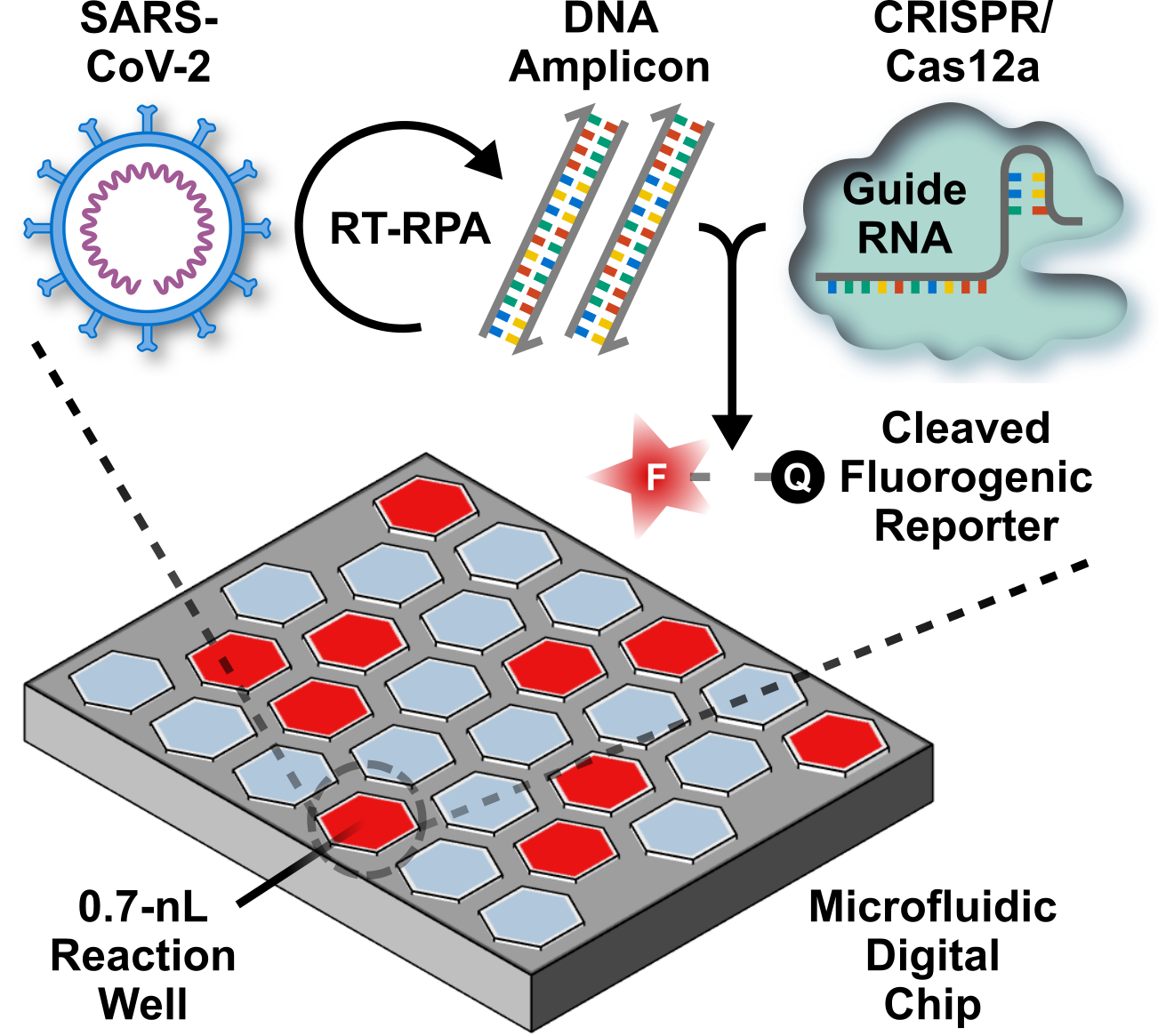 01/2021
01/2021